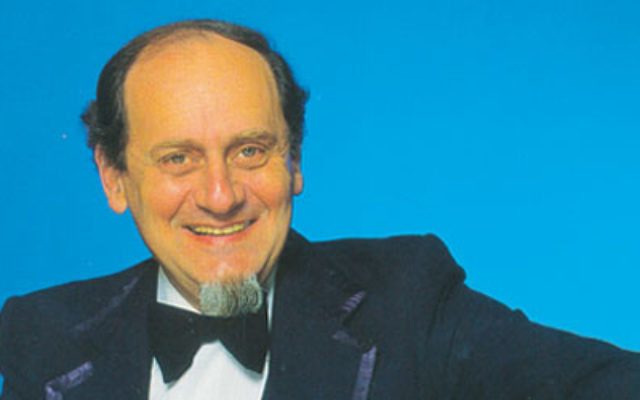Musical talents of Tommy Tycho
WHEN Hungarian-born musician, composer and conductor Tommy Tycho died in Sydney earlier this month, aged 84, he left behind a legacy of work few could equal.
Treasured by the Jewish, Hungarian and entertainment communities, Tycho was born in Budapest, Hungary, in 1928 to Jewish parents who had converted to the Lutheran faith.
The son of an opera singer, Tycho began playing the piano at an early age and was soon declared a musical prodigy.
This formidable musical talent would take him from war-torn Budapest to pre-revolutionary Iran and finally to Australia, where he was known as “The Maestro”.
Across a career spanning 60 years, Tycho worked with and mentored such Australian musical talent as John Farnham, Marina Pryor, Anthony Warlow and Julie Anthony.
His orchestrations are part of Australian culture, including Farnham’s well-known cover of The Beatles’ hit Help and the version of Advance Australia Fair played at major cultural and sporting events.
Tycho was unaware he was Jewish until he was in his teens. “His mother sat him down after [Hitler’s] edict was handed down and said, ‘I have something to tell you – you’re Jewish’,” Tycho’s daughter Vicky Tycho told The AJN.
Aged only 15, Tycho was put to work in a labour camp during the Shoah.
“Dad lost a lot of relatives in the Holocaust, but he and his mother and sister all survived.”
After the war ended, the 18-year-old Tycho enrolled at Budapest’s Franz Liszt Academy of Music and later joined a dance band, touring the Middle East.
Tycho’s musical talents dazzled all who heard him play and the Shah of Iran appointed him as his personal pianist after hearing him play.
Tycho stayed in Iran for four years, meeting his Budapest-born wife Eve during his time there.
“When they decided to leave Iran, my parents applied for visas to Canada, America, New Zealand and Australia,” says Vicky. “Australia responded first, so they came here and dad was a proud Australian.”
Landing in Australia in 1951, Tycho worked with ABC Radio but it was his work with the Seven Network, at the birth of Australian television in 1956, that set Tycho on his true path.
Tycho composed music for the live programs that were the heart of Australia’s early years of television, backing performances of stars such as Frank Sinatra and Shirley Bassey on variety shows including Sydney Tonight.
Tycho and Eve lived in the Sydney suburb of Castlecrag and Vicky, born in 1959, recalls weekends full of her parents’ friends from Sydney’s Hungarian-Jewish community.
“They were all very like-minded people,” says Vicky. “Dad wasn’t religious in any sense, but I think he felt culturally Jewish.”
In 1971, after 15 years with Network Seven, Tycho decided it was time to take a break.
“He was working 20-hour days, smoking 80 cigarettes a day and was drinking soup bowls full of coffee to keep going,” says Vicky.
“He took about six months off, but he wasn’t happy not working. He didn’t enjoy it at all.
“He was very disciplined. Every morning, even when he wasn’t working, he would get up by 7am and write or arrange music.”
In the 1970s, Tycho began working as a freelance composer, conductor and arranger, touring around the country with Australia’s major symphony orchestras. He conducted nine Royal Command Performances and became known as “The Maestro”.
From 1980-90, he worked with Vicky as a double act known as the Dueling Pianos.
In Sydney, Tycho was well-known for his longstanding membership of the Hakoah Club.
“Nothing was ever too much to ask of Tommy,” says Hakoah president Phil Filler. “He was a truly inspirational and cultured individual.”
Tycho was passionate about ensuring that the next generation developed a love for music.
“Tommy had an absolute and utter devotion to finding and developing young musical talent,” says Vivien Zeltzer, who worked with Tycho on the talent quest show, Australian Singing Competition, in the late 1980s.
“He was the kindest, gentlest, most giving human being I’ve ever met. He was nothing but encouraging to the contestants.”
In 2008, Tycho suffered a debilitating stroke, losing the use of the left side of his body. But he continued to play the piano with his right hand, accompanied by Vicky or a physiotherapist at Sydney’s Montefiore Home.
At Tycho’s funeral on April 11, a who’s who of the Australian entertainment community paid their respects to the man called “the father of Australian music”.
“I’ve just lost my best friend,” says Vicky, who visited her father every day at Montefiore. “He was everything to me.”
REPORT by Alexandra Roach
PHOTO of Tommy Tycho


comments